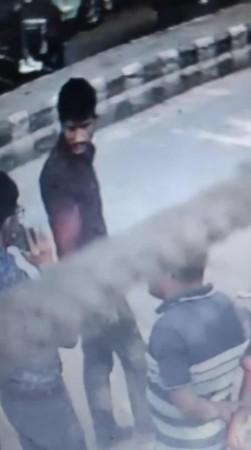
India is witnessing a major shift when it comes to dealing with acts of terror. Online radicalisation and the joining of terror groups voluntarily, without being coaxed, is a matter of grave concern.
Dr. Umar Nabi's case is a classic example of this. Nabi, who had carried out the blast near the Red Fort, was not coaxed by anyone to join the Jaish-e-Mohammed. Investigators say that he was part of several online channels of the terror group since 2018.
Intelligence Bureau officials say that between 2018 and 2023, he would not converse with these groups. Instead, he would follow the content and not even comment. He was not into discussing what he read about with anyone and stayed to himself and went about his work.
However, in 2023, he decided on his own that he would join the Jaish-e-Mohammed and carry out acts of terror. He then decided to form a small group with whom he could discuss his plans. Over the next couple of months, Nabi created 15 Telegram channels and invited a select few people.

He began by discussing the message of Masood Azhar, the chief of the Jaish-e-Mohammed. He would explain to the other members the importance of Azhar's work and why backing the Jaish-e-Mohammed is important. Owing to his online skills, he was able to dodge the agencies.
He used virtual numbers that were procured through VPN and VoIP applications that were registered in Nepal and Turkey. Once the members were in and the network set, he invited top Jaish-e-Mohammed members from Afghanistan to discuss his plan further. He also had members from Turkey to suggest ideas and give guidance. In the run-up to the formation of the Faridabad module, all the members, part of this group, had two handlers -- one from Afghanistan and the other from Turkey.
Investigators have learnt that his behaviour and approach changed completely from 2023 onwards. He had become more determined and felt that indoctrination was not enough, but it was necessary to carry out major attacks in the country.
An official said that the manner in which Umar Nabi functioned was more or less like a lone wolf. He was the one who joined these online radical channels. He recruited himself and was not reached out to by anyone. This is an increasingly dangerous trend, as such persons are hard to track. They act alone and to the outside world look normal.
The suspicion of such persons while they are going about their work is nil. While this works for terror groups like a charm, it is a nightmare for the security agencies. The very fact that Nabi managed to keep everything under wraps between 2018 and 2025 itself suggests how dangerous such operatives are for national security.
There could be many such persons across the country who are lone-acting terrorists. Such persons are not part of organised networks and are motivated digitally. They have no expectations from the terror group that they owe their allegiance to. Instead, they are willing to do everything and even act on their own. Officials say that such persons are the biggest assets for terror groups.
This is a huge challenge for the security agencies going ahead. Officials say that persons like Nabi ought to be made into a case study to understand the gravity of the situation and how to deal with this problem. Based on this, officials say that they would need to devise a new strategy, which should also be evolving in nature if such threats are to be countered.
(With inputs from IANS)



!['Valentine's Week in Parliament'? : Saugata Roy, June Malia's cosy conversation amid house session goes viral [Watch] 'Valentine's Week in Parliament'? : Saugata Roy, June Malia's cosy conversation amid house session goes viral [Watch]](https://data1.ibtimes.co.in/en/full/828484/valentines-week-parliament-saugata-roy-june-malias-cosy-conversation-amid-house.jpg?w=220&h=135&l=50&t=40)






!['Valentine's Week in Parliament'? : Saugata Roy, June Malia's cosy conversation amid house session goes viral [Watch]](https://data1.ibtimes.co.in/en/full/828484/valentines-week-parliament-saugata-roy-june-malias-cosy-conversation-amid-house.jpg?w=220&h=135)

